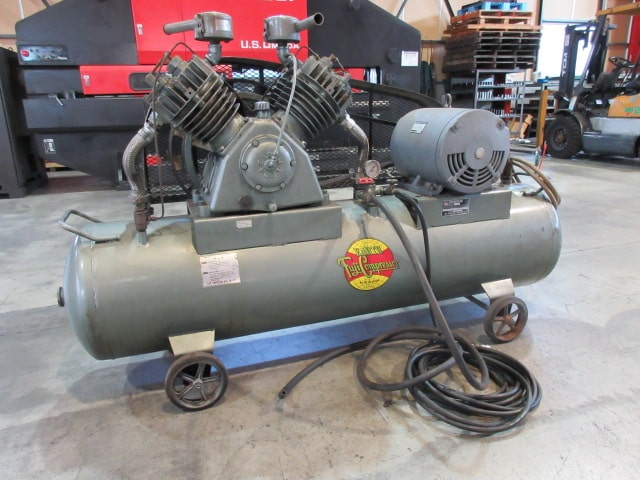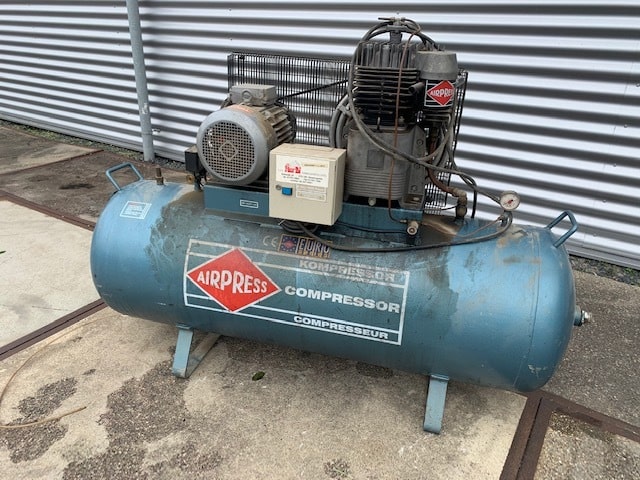So, your company will need the compressor. As a result, you will have to find work as well as submit it to superiors’ proposals. Selecting the compressor – is accountable. Prior to your shop, you ought to identify in advance what sort of maker is right for your objectives.
1. What does the compressor?
The compressor presses the gas.
2. What type of gas must be pressed?
If the answer is – “Air”, then you require an air compressor. If you need to compress various other gas – then want a gas compressor or any of the particular compressors. Separately emit co2 compressors are made use of for liquid or solid carbon dioxide (co2), as well as refrigeration compressors, which compress ammonia, freon, or other refrigerants and are made use of in fridges.
3. What performance, or how much gas must be pressed each time?
Ð ¡ capacity or circulation rate and is gauged in cfm or cfpm.
4. To what stress should compress the gas?
( The preliminary pressure, normally climatic, and otherwise, then we must ask and from what?).
The last pressure is normally called the discharge pressure (outlet pressure, discharge stress) and can be expressed as an outright, ie zero-based, and as extreme, ie, the correction to the air pressure. Procedure the pressure in PSI.
5. What triggers the compressor to compress the gas?
This is the drive. Drive is usually electrical or diesel. Important driving power, measured in kilowatts kilowatt (kW) or horsepower hp (HP), 1 HP = 0.74 kW, and also rotational rate, measured in transformations per minute, (rpm). Important for the motor voltage, which is measured in volts, (V), the regularity of the supply voltage, gauged in Hertz, (Hz).
For quotes of beneficial to keep in mind that for every 35.3 cubic feet per min performance general-purpose compressor (pressure 7. 10 atm.) needs somewhere 7-8 kW of setting up the ability of the drive.
6. Will compressor tourists?
When addressing this concern, you make a choice between a fixed and also mobile compressor terminal. Fixed compressors are installed in the shop for a long-term seat, high-performance version – to the provider frame or structure. The mobile compressor terminals are mounted on the framework and also carry on building and construction sites, roadway building, the oil industry …
7. Just how cool is the compressor?
All of us were shown in school that the gas is heated up during compression. As a result, when the compressor is released large quantities of heat, which is needed to eliminate the cooling system. Main varieties – air-cooled as well as water-cooled down. The last needs a supply of recycled water, so you should ask about the water circulation rate each time.
8. Does the compressor air receivers (receiver)?
If not, then possibly you’ll need to buy it individually. Air Receivers smooth surge of gas, give a supply of compressed gas in suspension compressor stability of automated control.

In most cases, it is the optimum amount of air storage tanks to 35.3 cubic feet for every single 70. 140 cubic feet per min. of the compressor.
9. What the compressor is inside?
Most often it is the cylinders with pistons (piston compressor, naturally), or a set of screws (Screw compressor), which are steadily being driven gas, decreasing its volume. Usually (with the exact same performance) Piston price much less loud, a growing number of quickly fixed, as well as the screw – costly, quieter, more secure, and also more cost-effective.
10. With butter or no butter?
To enhance the performance of the compressor clearance between the piston as well as the cylindrical tube with a piston compressor and also in between the screws – in screw – generally filled with oil. Naturally, several of the oil is in the pressed air. His department utilized oil separators as well as filters. In cases where the oil web content in pressed air must be very small or use oil-free (completely dry) compressors are a lot more pricey than common and also have much less trusted or pricey sets of filters of high pureness. Please take a moment to visit the air compressor compare to find out more important information.


